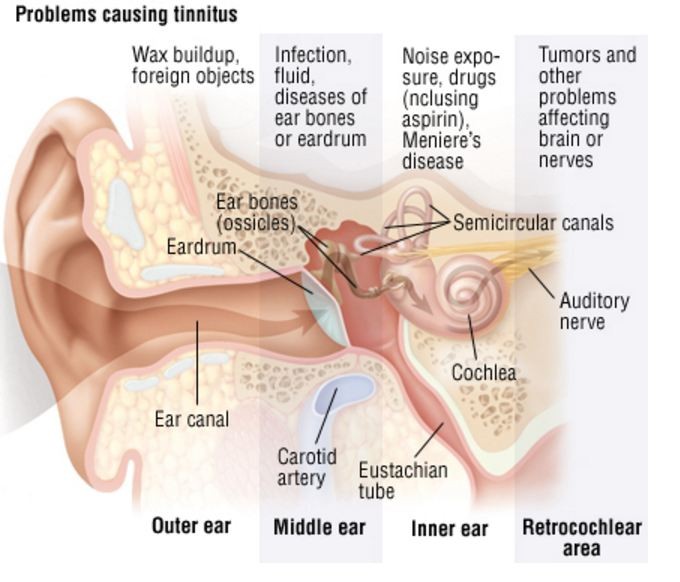There probably will never be a comprehensive cure for tinnitus, that maddening high-pitched tone or ringing in a person's ears, but doctors are counseling its victims to try steps to alleviate the mental panic this affliction causes. Tinnitus is also more prevalent among Americans than previous studies have suggested.
A new study published in the journal JAMA Otolaryngology-Head & Neck Surgery found that about one in 10 American adults commonly experienced tinnitus in the past year.
Researchers analyzed data from some 75,000 participants (ages 18 and older) from the 2007 National Health Interview Survey who were asked if they experienced their ears ringing, and if so, how severe it was and how often it occurred.
The researchers found that 36 percent of study participants reported having tinnitus constantly. Fifty-six percent of adults reported suffering from tinnitus for more than five years, while 27 percent reported it for over 15 years.
Interestingly enough, almost 40 percent of participants that reported having tinnitus noticed the ringing sensations close to bedtime. This could be because the quiet allows people to hear the high-pitched whine more easily.
The study also found that people exposed to loud noises often are more likely to suffer from tinnitus. That includes those who often go to concerts or who work at factories or use loud tools, and those who were in the armed forces or exposed to noise trauma.
The study revealed that 42 percent of participants considered ringing in their ears a small problem, with less than half talking about their symptoms with their doctor.
The American Academy of Otolaryngology-Head and Neck Surgery Foundation established a set of treatment guidelines for doctors suggesting ways to ease the annoyance of tinnitus.
These treatments include using a hearing aid often because tinnitus is most commonly linked to hearing loss. Hearing aids will reduce or even mask the sound.
Lead author of the study Dr. Harrison Lin, an ear specialist at the University of California, Irvine also recommended therapy as an effective form of treatment.
Lin said cognitive behavioral therapy has helped improve tolerance and reduce the negative health impact tinnitus has on patients. He pointed out that tinnitus is closely tied to hearing loss.
People should visit a doctor when they commonly experience tinnitus or when ringing of the ears affects their quality of life.



























